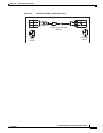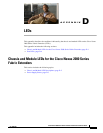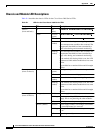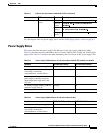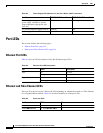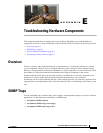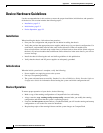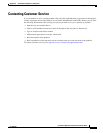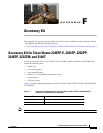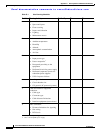
E-1
Cisco Nexus 2000 Series Hardware Installation Guide
OL-19013-05
APPENDIX
E
Troubleshooting Hardware Components
This chapter describes how to identify and resolve problems that might occur with the hardware
components of the Cisco Nexus 2000 Series Fabric Extender (FEX). It includes the following sections:
• Overview, page E-1
• SNMP Traps, page E-1
• Device Hardware Guidelines, page E-2
• Contacting Customer Service, page E-3
Overview
The key to success when troubleshooting the system hardware is to isolate the problem to a specific
system component. The first step is to compare what the system is doing to what it should be doing.
Because a startup problem can usually be attributed to a single component, it is more efficient to isolate
the problem to a subsystem rather than troubleshoot each separate component in the system.
Problems with the initial power up are often caused by a module that is not firmly connected to the
backplane or a power supply that has been disconnected from the power cord connector.
Overheating can also cause problems with the system, though typically only after the system has been
operating for an extended period of time. The most common cause of overheating is the failure of a fan
tray.
SNMP Traps
You can set SNMP traps to monitor fans, power supplies, and temperature settings, or to test a call home
application. Use the following commands to set SNMP traps:
• test pfmtest-SNMP-trap fan
• test pfmtest-SNMP-trap power supply
• test pfmtest-SNMP-trap temp-sensor



